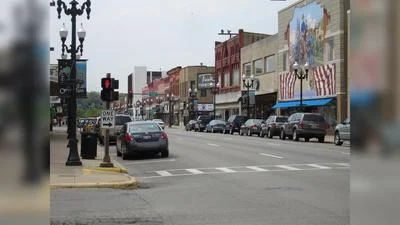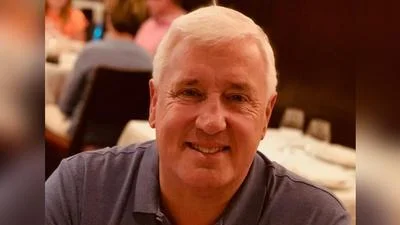After a 2019 mass shooting at an Aurora workplace that left 6 people dead and 5 police officers injured, Gov. J.B. Pritzker signed measures into law to reform the state's gun control processes. | Facebook
After a 2019 mass shooting at an Aurora workplace that left 6 people dead and 5 police officers injured, Gov. J.B. Pritzker signed measures into law to reform the state's gun control processes. | Facebook
During a Joint Committee on Administrative Rules meeting, Republican lawmakers questioned the Illinois State Police about its assertion that it had no authority to deny a FOID card to the alleged Highland Park shooter, Capitol News Illinois reports.
In September 2019, Highland Park police sent a clear and present danger report to ISP regarding the alleged July 4 mass shooter, Robert Crimo III, after he threatened to "kill everyone" in his home. Three months later, Crimo applied for a FOID card, which allowed him to purchase firearms. He subsequently purchased five weapons legally over the next two years.
Crimo was not arrested after the September 2019 incident, and although the Highland Park police forwarded the report to ISP, it was discarded because Crimo did not have a FOID or a pending application at that time.
ISP stated at the meeting that its hands were tied because of the rules in place at the time. Several weeks after the July 4 shooting, ISP issued a new emergency rule stating that it will maintain clear and present danger reports, even if the subject of the report does not have a FOID or a pending application. During the JCAR meeting, the rule was allowed to stand.
State law allows local law enforcement officials and school administrators to file clear and present danger requests with the ISP in the event that they believe that someone, "if granted access to a firearm or ammunition, pose an actual, imminent threat of substantial bodily harm to themselves or others," NBC reports. Then, ISP can reject a FOID card application for that individual or revoke an issued FOID card.
After a 2019 mass shooting at an Aurora workplace that left six people dead and five police officers injured, Gov. J.B. Pritzker signed measures into law to reform the state's gun control processes, the Du Quoin Call reports.
The law, which took effect on Jan. 1, provided funding and established a task force to assist with confiscating firearms from people who have had their FOID cards revoked. The bill also charged the state police with monitoring state and federal databases of gun-related crimes to identify people who should not be allowed to own firearms.
In an opinion piece for Real Clear Politics, Republican candidate for attorney general Thomas DeVore criticized the spike in violent incidents in the Chicagoland area and is concerned that the implementation of the SAFE-T Act in January 2023 will add to the violence, calling the bill "anti-police, pro-criminal." DeVore also spoke out against Cook County State's Attorney Kim Foxx and incumbent Attorney General Kwame Raoul for backing laws that he believes put more violent individuals back onto the streets.
EveryTown For Gun Safety ranks Illinois' gun control laws the sixth harshest in the U.S., citing the requirement for background checks on all gun sales and an extreme risk law contributes to this. Each year, 1,505 people in Illinois are killed as an outcome of gun violence. The Chicago Police Department reports 444 murders and 1,885 shooting events in the city as of Aug. 28.






 Alerts Sign-up
Alerts Sign-up